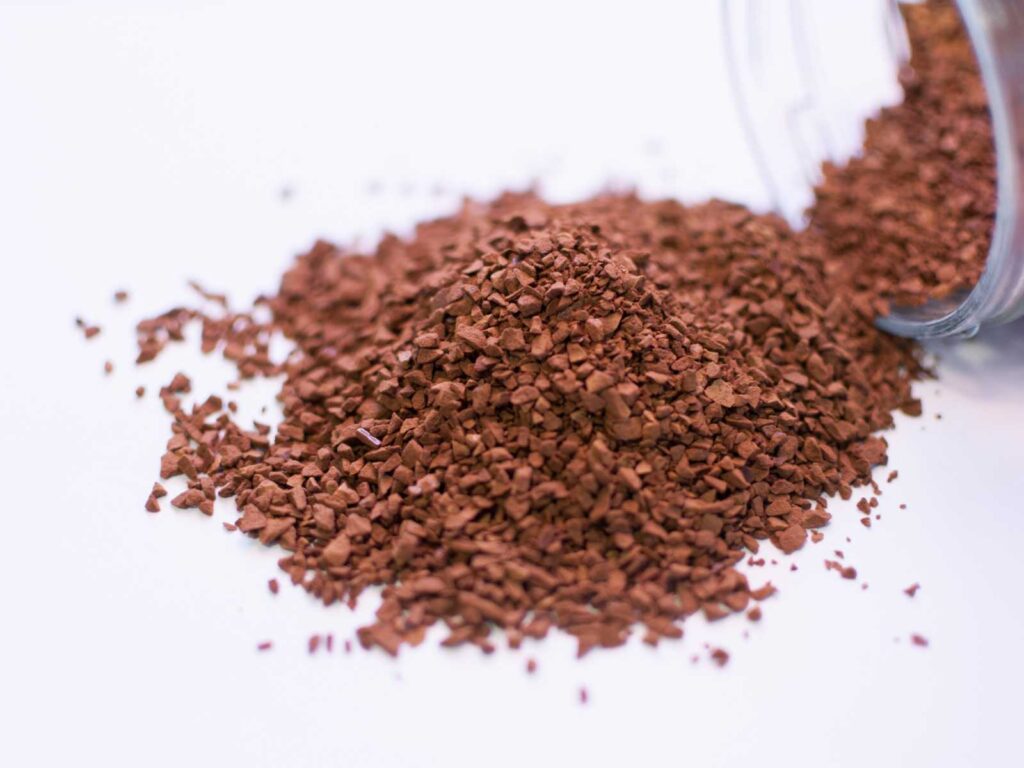Introduction
Coffee leaf tea looks to be in a good position to carve out a unique niche for itself in the tea market. It is made utilizing the principles of tea oxidation processing from the discarded leaf of coffee trees. In preparing coffee, only the bean is chosen. The leaf is thrown away. Coffee leaf tea transforms it into a sophisticated, mildly caffeinated drink with a flavor more to green tea than coffee. The cherry on a coffee plant is its most valued component.
We receive the beans after they are harvested and processed, which we then ground, roast, and brew. The stems, branches, and leaves of a coffee plant are frequently just thrown away after it has been chopped or pruned. However, its leaves are collected and brewed to make coffee leaf tea in several regions of the world.
What is coffee leaf tea?

It is an infusion prepared from arabica coffee plants’ leaves. Since these leaves are taken and repurposed during the off-season, they don’t impede the harvest of coffee beans, hence neither the plant nor the coffee beans are impacted by the operation.
After roasting, these leaves can be crumbled or broken up and steeped in hot water to make a tea-like beverage [citation needed]. The final beverage has a flavor close to green tea but less caffeine than coffee or ordinary tea.
Only a few months of the year are dedicated to the harvest of coffee, depending on the nation. Many producers and laborers may be left without jobs and money for a considerable period of the year as a result of this. The widespread misconception that coffee leaf tea tastes like coffee is one of the main obstacles to people drinking it.
When the coffee plant isn’t producing coffee cherries, which occurs during the off-season, the leaves are usually picked. The tea leaves are subsequently extracted by a variety of techniques, including air-drying or light oxidation.
The resulting tea is commonly made and drunk similarly to traditional teas, and it has a mild, somewhat sweet taste with faint notes of coffee-like aromas. Because it uses a byproduct of the coffee plant, has less caffeine than coffee beans, and may have health advantages, coffee leaf tea is becoming more and more of a unique and sustainable beverage option.
Health benefits of Coffee Leaf Tea

Also read : How To Brew Specialty Coffee
- It balances the body’s synthesis of nitric oxide and contains a component called mangiferin, it has potent anti-inflammatory health benefits. There is some evidence of effects on insulin, cholesterol, and Type 2 diabetes. While promising, claims of cancer prevention have not been validated in human clinical trials.
- Though not as much as green tea, the drink nevertheless has some caffeine. This offers the well-established health and mental advantages of moderate caffeine use in addition to a taste boost. This increases the market’s potential by providing green tea connoisseurs with a strong alternative and herbal tea and rooibos options as a healthy option.
- Coffee leaf tea may enhance digestive health, increase metabolism, and provide a small energy boost without the jitters that are often associated with coffee, according to some research.
Does coffee leaf tea contains caffeine?
The type of coffee plant, the age of the leaves, the processing technique, the brewing temperature and duration, and other variables can all affect how much caffeine is in coffee leaf tea. When compared to regular coffee prepared from coffee beans, coffee leaf tea often has less caffeine.
While the precise amount of caffeine in coffee leaf tea can vary, some studies have estimated that it may contain 20–30 mg per 8-ounce (240 ml) serving. This is significantly less than the 80–200 mg or more that can be found in an equivalent serving of brewed coffee. It’s crucial to remember that these estimations could be incorrect and that a number of variables could affect how much caffeine is actually present in coffee leaf tea.
How to Prepare Coffee Leaf Tea

Also read : Experience the world of Honduras Speciality Coffee
- Bring 8 ounces (240 milliliters) of water to a boil. For optimal results, use filtered water.
- For every eight ounces of water, use around one teaspoon of coffee leaf tea leaves. Adapt the quantity to your own particular inclination.
- To steep coffee leaf tea, put the leaves in a heat-resistant cup or teapot. After adding the boiling water to the tea leaves, steep them for three to five minutes, or until the required strength is achieved. You can adjust the steeping time to get the desired strength or weakness of beer.
- Using a fine-mesh strainer, remove the tea leaves from the liquid once it has steeped. After making coffee leaf tea, pour the liquid into your cup and throw away the spent leaves.
- To improve the flavor of your coffee leaf tea, feel free to add sweeteners like sugar or honey, as well as other flavorings like milk, cream, or spices. To suit your taste, adjust.
- Enjoy a sip of your just made cup of coffee leaf tea!
Conclusion
Coffee leaf tea is a greenish, slightly bitter beverage that looks a lot like green tea. In Ethiopia, where it has been used for a while, it is known as kuti or kuti tea. Coffee leaf tea isn’t very popular because most coffee producers aren’t very interested in harvesting the leaves because doing so decreases the plant’s capacity to produce fruit, and consequently, beans. However, considering how intriguing and healthful the beverage is, that may soon change.
Why is coffee leaf tea beneficial?
5-CQA (5-O-caffeoylquinic acid) is one of the most common chlorogenic acids found in coffee leaves, and research has shown that it has anti-inflammatory, neuroprotective, and cardiovascular benefits.
What is the caffeine content of coffee leaf tea?
Our dried teas have roughly 20 mg of caffeine per serving (8 oz/250 ml cup) while our iced teas contain 35 mg each 12-oz can.
Does Coffee Leaf Tea help the stomach?
Since coffee has long been recognized to affect digestive systems, most people have made it a practice to drink it after meals. In fact, coffee is thought to facilitate digestion by influencing the stomach’s acid production, bile and pancreatic secretion, and colon motility.

